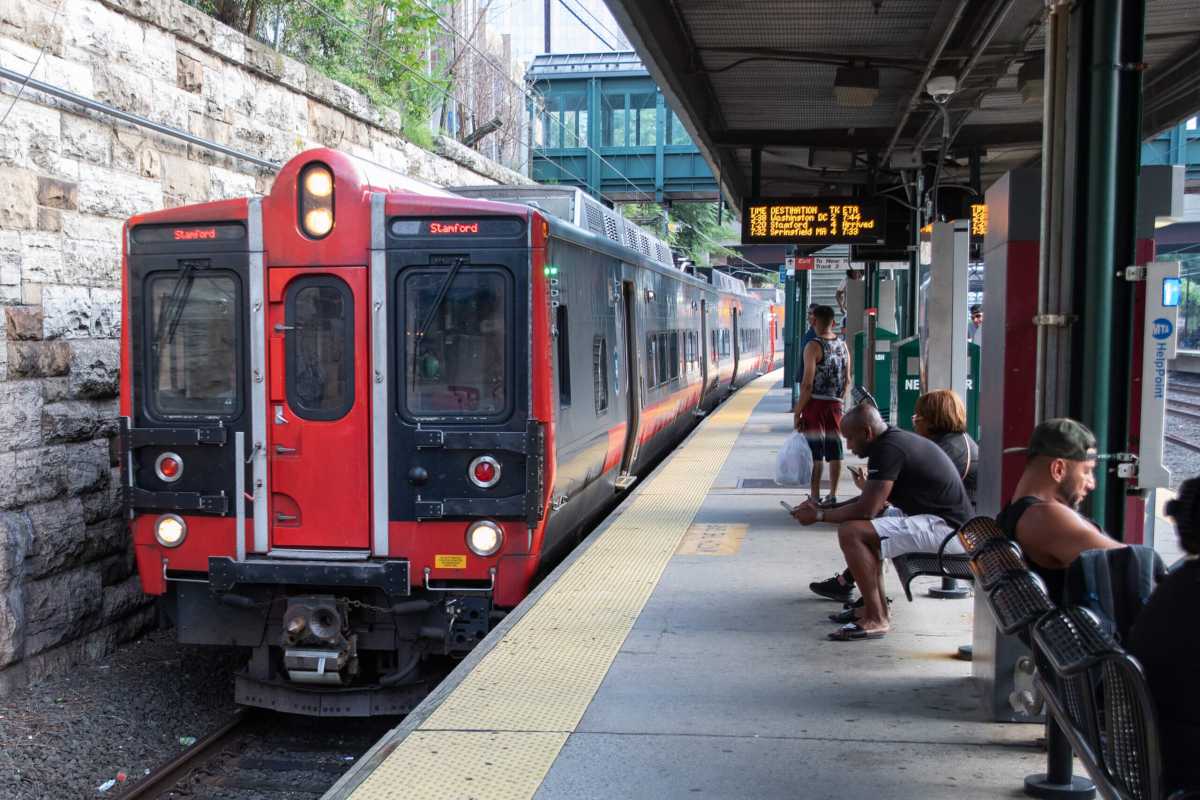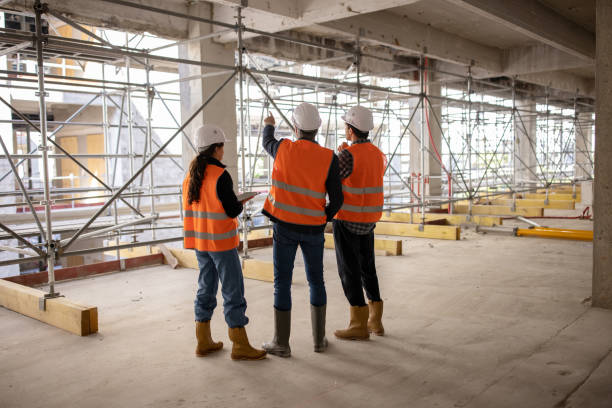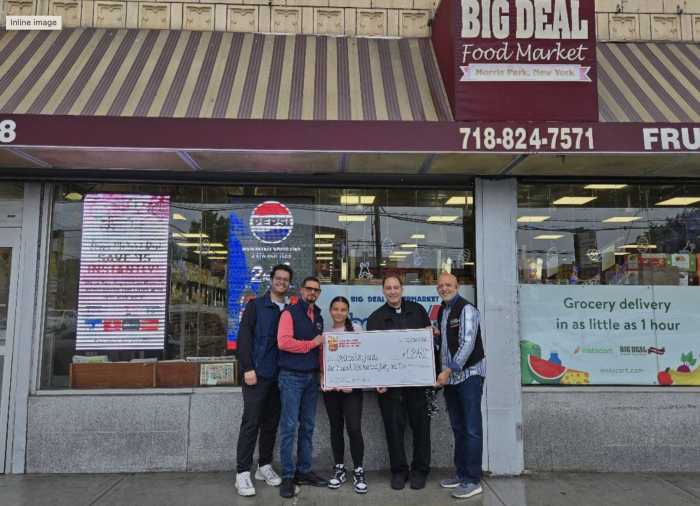The New York City Department of City Planning (DCP) is proposing to rezone areas surrounding two of the four new Metro-North stations coming to the Bronx as part of the Penn Access megaproject.
Officials from DCP outlined their vision for rezoning the areas around the new Parkchester/Van Nest and Morris Park stations during a Jan. 22 City Planning Commission meeting — with the goal of bringing nearly 7,500 units of housing, including permanent income-restricted housing, 10,000 jobs and enhanced community gathering spaces. The meeting kicked off the commission’s public review process for the Metro-North expansion, which has been in the works for six years.
“Our plan will help to ensure that those who live and work in these four neighborhoods are the ones who benefit the most from these new stations,” said Dan Garodnick, DCP director and chair of the City Planning Commission. “From housing to jobs, open space to infrastructure, and more, this community-focused plan will be a truly transformational and positive force for the Bronx.”
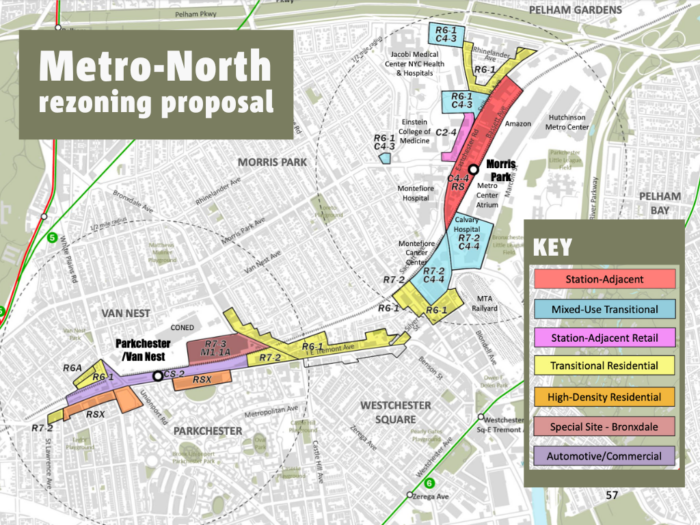
According to DCP, the sites closest to the new Parkchester/Van Nest station are currently considered to be a relatively low density — limited primarily to manufacturing district (M1) or commercial district (C8) status. Buildings with M1 status generally include places such as woodworking shops, repair shops and wholesale service and storage facilities, while C8 zones provide for automotive and other heavy commercial services that often require large amounts of land, according to the New York City Department of Planning. Similarly, the land surrounding the new Morris Park station is also mostly M1 status.
Additionally, in both the Parkchester/Van Nest and Morris Park station areas there is a “limited range of [land] uses permitted,” as well as no new residential zoning allowed, according to DCP.
But that will change if the City Planning Commission adopts DCP’s plan to rezone the areas near the two new stations — which include plans for increased commercial and retail zoning, as well as high-density residential rezoning.
When asked by the commission to explain why the Hunts Point and Co-Op City stations are excluded in the new rezoning proposal, DCP officials pointed to their yearslong research and public engagement process.
Hunts Point is already sporting various major development projects — including the 20-year Hunts Point Vision Plan and the Hunts Point Produce Market revamp — DCP said.
Meanwhile Co-Op City residents said they’re much more concerned with pedestrian and commuter circulation around their new station site. Officials did note the possibility of coming back to Hunts Point with a rezoning plan at some point in the future at the Jan. 22 meeting, however.
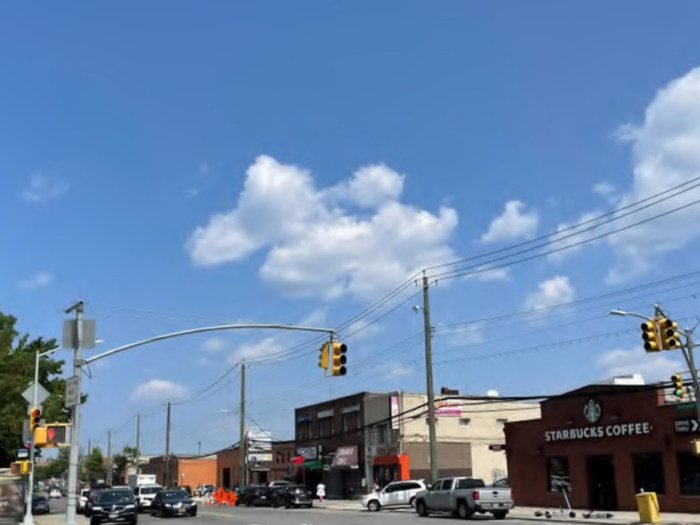
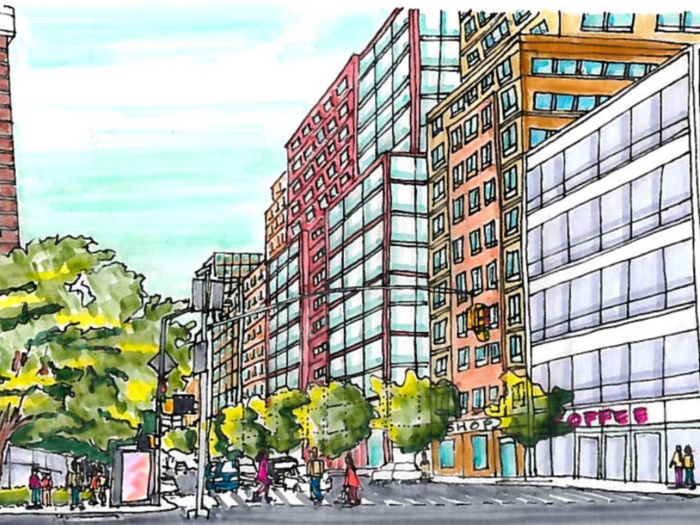
The City Planning Commission public review begins the roughly seven-month Uniform Land Use Review Procedure (ULURP) process, according to DCP, which is the city’s formal public review of prospective land use and development applicants.
It’s another step forward for the Penn Access project — a multi-billion dollar feat that aims to cut down Metro-North commute times to and from midtown Manhattan’s Penn Station by upwards of 50 minutes and better connect the East and South Bronx with Westchester County and Connecticut.
The project’s first major victory came in December 2021 when U.S. Senate Majority Leader Chuck Schumer announced a $1 million deal between the MTA and Amtrak — which owns the stretch of tracks Metro-North is set to use for the Penn Access project, which are mostly along a 6-mile section of the Hell Gate Line.
Officials broke ground on the first new station in Hunts Point just about a year later in December 2022, but the project stalled this past July under “a problematic circumstance” wherein the MTA accused Amtrak of not providing required resources to keep the initiative on schedule to be completed in March 2027. Those required resources, MTA representatives said this summer, included service outages needed for construction and “force account” staff, which are Amtrak workers who are supposed to help the MTA’s labor force.
The New York delegation also announced in November 2023 another $1.6 billion from the Federal Railroad Administration to build the four new Bronx Metro-North stations and rehabilitate 19 miles of the Hell Gate Line.
The four new Metro-North stations in Hunts Point, Parkchester/Van Nest, Morris Park and Co-Op City are scheduled to open in late 2027.
The ULURP process includes recommendations from Bronx Community Boards 9, 10 and 11, and the Bronx Borough President’s office. The next steps will include a vote by the City Planning Commission and then the full New York City Council, which will ultimately seal the proposal’s fate.
Reach Camille Botello at cbotello@schnepsmedia.com. For more coverage, follow us on Twitter, Facebook and Instagram @bronxtimes

